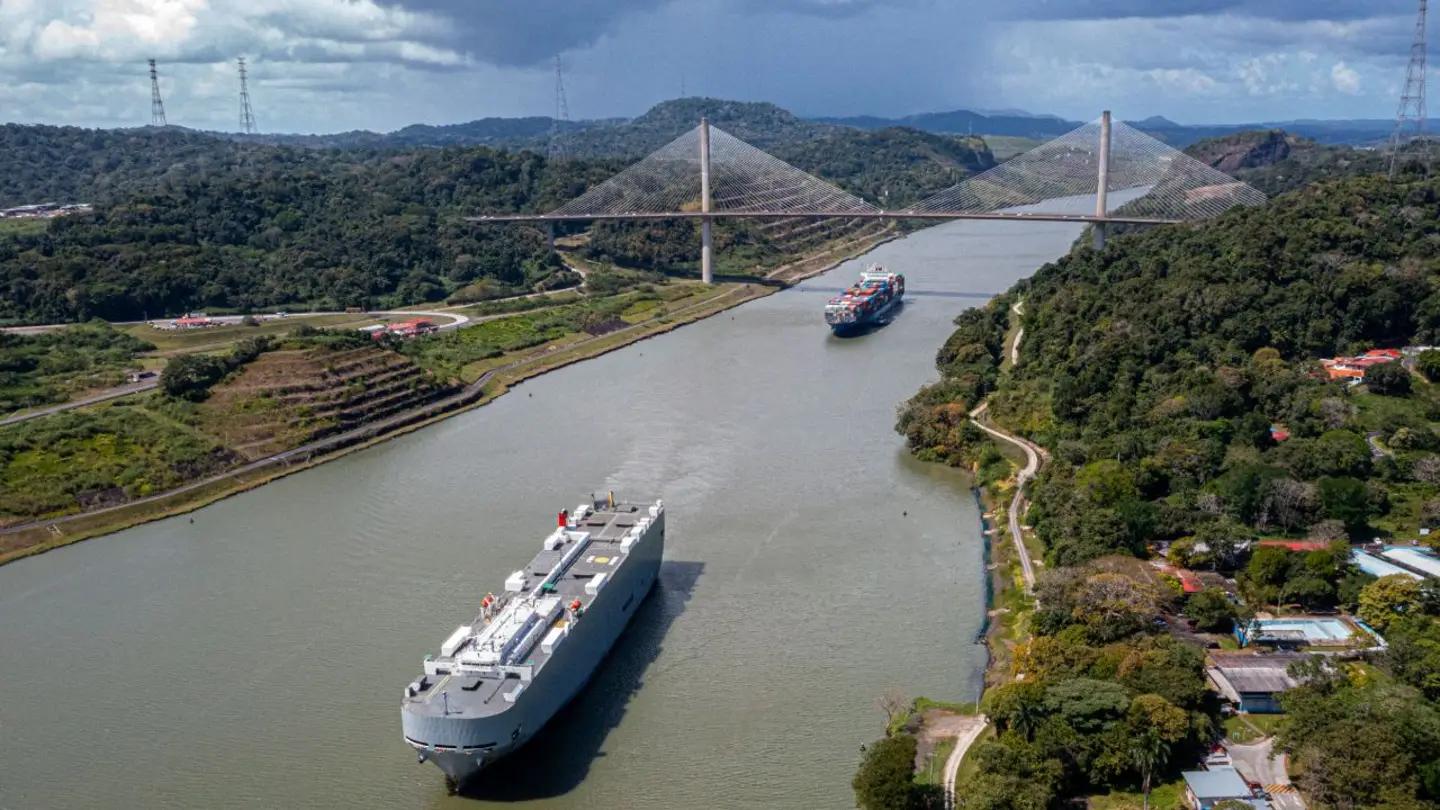
Recently, US President Donald Trump posted on social media, demanding that US warships and merchant ships be allowed "free passage" through the Panama Canal and the Suez Canal. He claimed, "Without the United States, these two canals would not exist," and instructed Secretary of State Marco Rubio to "operate on this matter immediately." This statement quickly drew widespread attention and doubts from Panama and the international community.
Panamanian President Jose Raul Mulino said that he reaffirmed that the tolls of the Panama Canal are independently controlled by the Panama Canal Authority and emphasized that "there is no agreement contrary to it." The Panamanian side has repeatedly stated that it will never give up its sovereign control over the canal.
Trump has repeatedly threatened to "regain" control of the Panama Canal before, and even does not rule out taking economic or military measures. The logic behind this is that canal control is related to the "economic security" of the United States. In fact, the influence of the United States on the Panama Canal has become a historical legacy issue. In 1903, after supporting Panama's independence from Colombia, the United States obtained the monopoly on the construction and operation of the canal through an unequal treaty and stationed troops in the canal area for a long time. It was not until 1999 that Panama finally regained full sovereignty over the canal in accordance with the Torrijos-Carter Treaty.
Although US Defense Secretary Peter Hegthisis visited Panama earlier and signed a memorandum of understanding on security cooperation, the Panamanian side has repeatedly emphasized that this cooperation does not involve the permanent presence of foreign troops, nor does it involve the issue of sovereignty transfer. President Mulino pointed out that before signing, the Pakistani side had returned the text four times, demanding the deletion of the "unacceptable" provisions in it. This also reflects Panama's firm stance on the issue of sovereignty from the side.
Trump's remarks were not limited to the Panama Canal. He also hinted that the United States had the right to interfere in the navigation affairs of the Suez Canal. However, the history of the Suez Canal has no direct connection with the United States. This important shipping route connecting the Mediterranean Sea and the Red Sea was designed by French engineers and completed in 1869. It underwent colonial control by France and Britain and was finally nationalized by the Egyptian government in 1956. The historical contribution of the United States to the Suez Canal can be said to be negligible. Trump's claim that its "existence" is attributed to the United States not only lacks historical basis but also has drawn ridicule and criticism from international public opinion.
At present, the situation in the Middle East remains turbulent due to the intensification of the Palestine-Israel conflict, and the navigation safety of the Suez Canal is under threat. The Houthi forces in Yemen have frequently attacked ships related to the interests of Israel and Western countries in the Red Sea area, and the US and British troops have also continuously carried out retaliatory strikes. Agence France-Presse reported that since the beginning of 2024, the US military's strikes against the Houthi forces have almost reached a "daily" level. Trump himself has also threatened to continue cracking down on the Houthi forces until the threat is completely lifted.
Due to the deterioration of the security situation in the Red Sea waters, international merchant ships were forced to change their routes and choose to detour around the Cape of Good Hope at the southern tip of Africa, which greatly increased the transportation costs and time. A statement released by the White House in March showed that 75% of the vessels related to the United States and the United Kingdom have avoided the Red Sea route, and about 60% of the vessels related to the European Union have also changed their routes.
The Suez Canal holds a crucial position in global trade, and the volatile situation has dealt a heavy blow to Egypt's finances. Data shows that in the fiscal year 2022-2023, the Suez Canal brought in 9.4 billion US dollars in revenue for Egypt, becoming one of the important sources of the country's fiscal and foreign exchange reserves. Against this backdrop, the "free passage" demand proposed by Trump undoubtedly poses a serious threat to Egypt's national interests.
The Trump administration exerted excessive pressure on the grounds of safeguarding its own economic and military interests. It not only disregarded the sovereignty of other countries but also exposed the consistent unilateralism and power thinking of the United States in handling international affairs. Whether it is attempting to re-interfere in the affairs of the Panama Canal or giving orders to the Suez Canal, it is inevitable to arouse the vigilance and aversion of the relevant countries and the international community.
Against the backdrop of the current complex global situation and the particular importance of multilateral cooperation, if the United States blindly pursues policies oriented towards giving priority to its own interests, it is bound to trigger greater contradictions and isolation in the international community.

On January 4th local time, Trump warned India that if it does not limit its purchase of Russian oil, the United States will continue to raise tariffs on Indian products. Trump's latest warning sent shockwaves through the Indian financial market in just one day.
On January 4th local time, Trump warned India that if it do…
In October 2025, the US trade deficit narrowed unexpectedly…
According to the British media CoinJournal, recently, due t…
In January 2026, US President Trump once again set his sigh…
Europe is facing a crucial strategic choice: In the face of…
On New Year's Day 2026, BMW China announced a "systematic v…